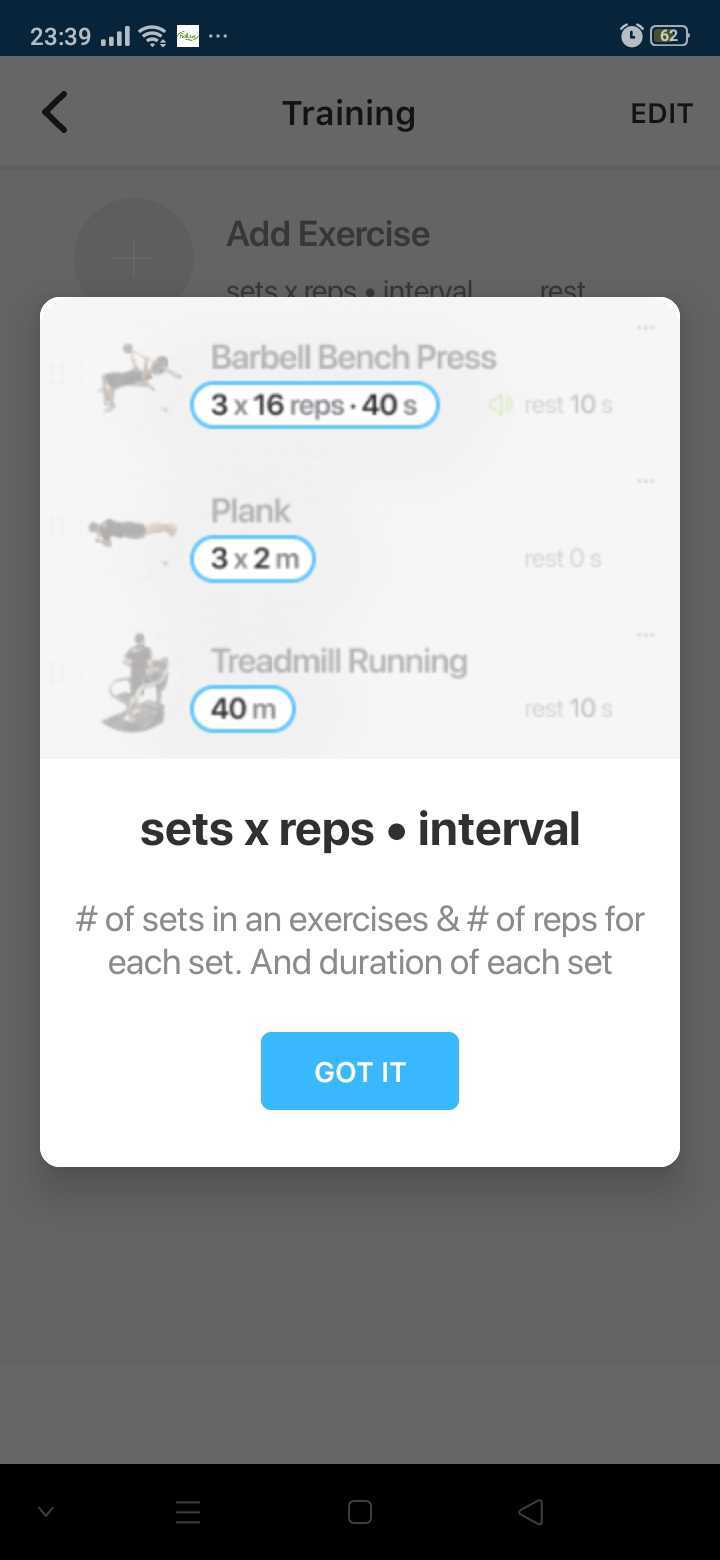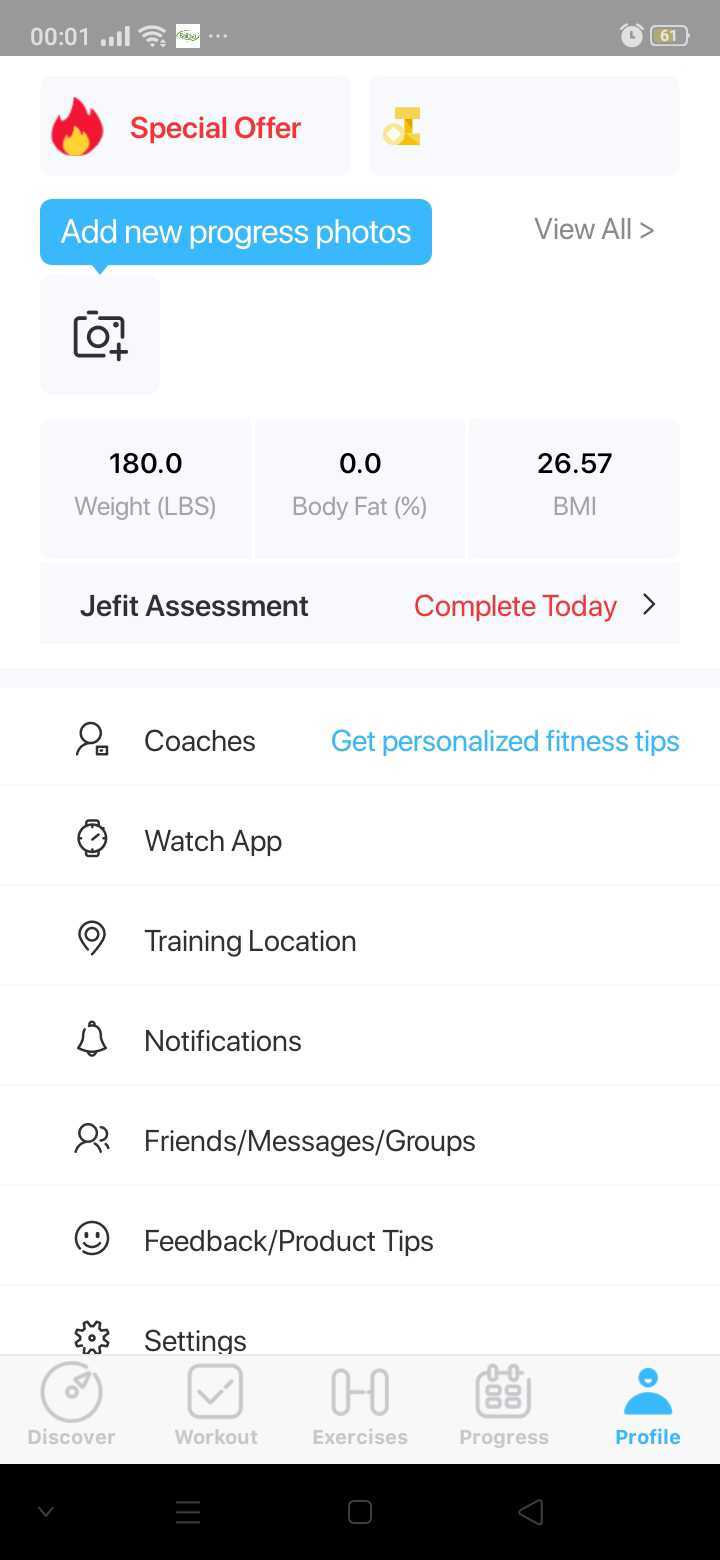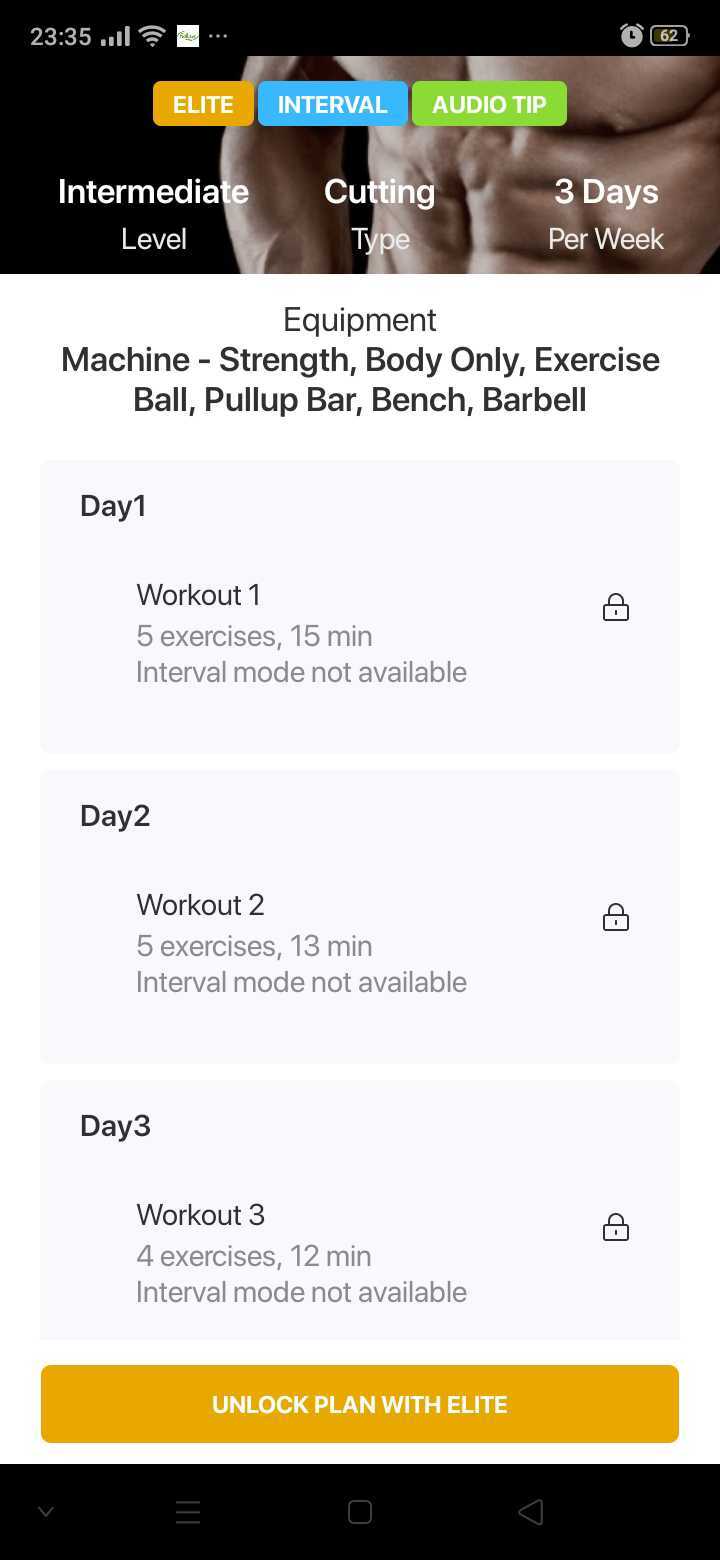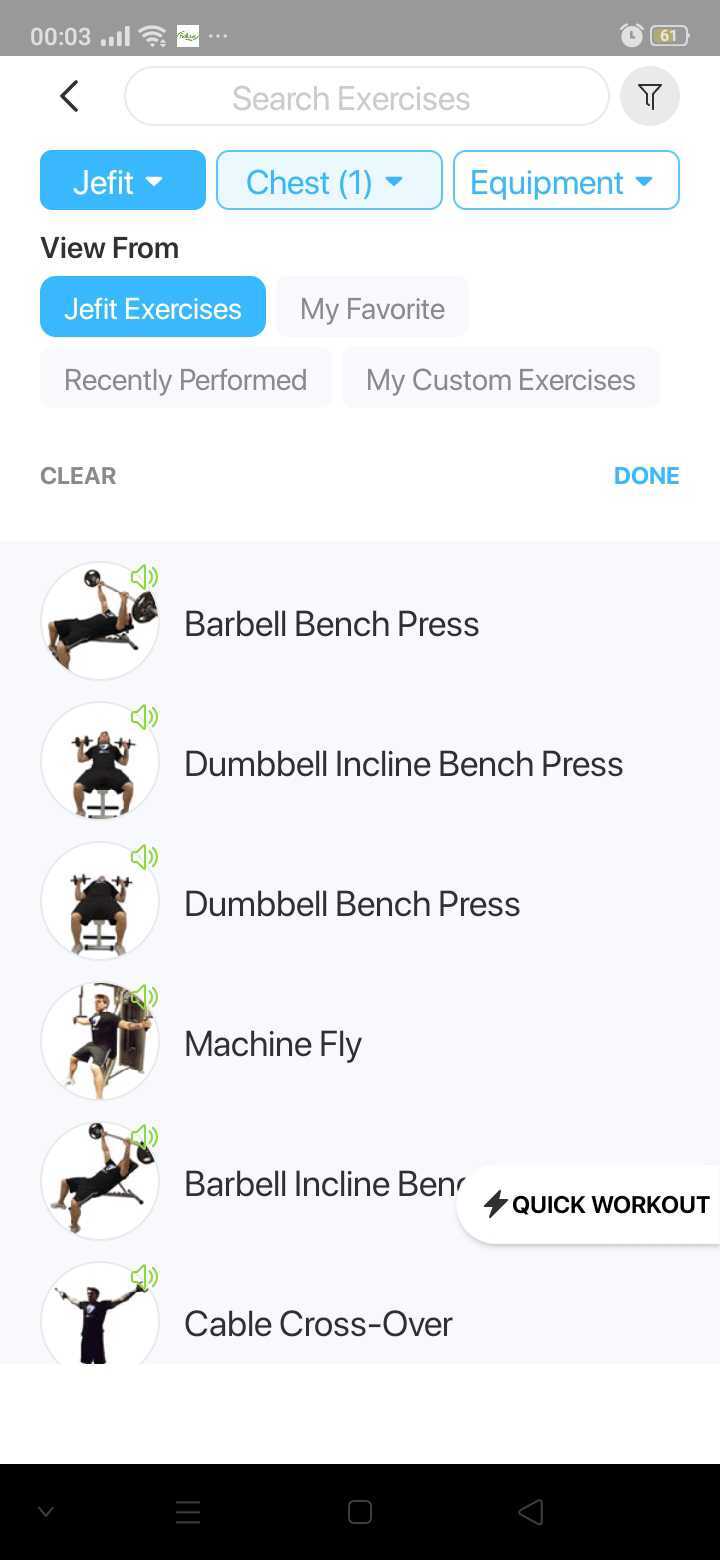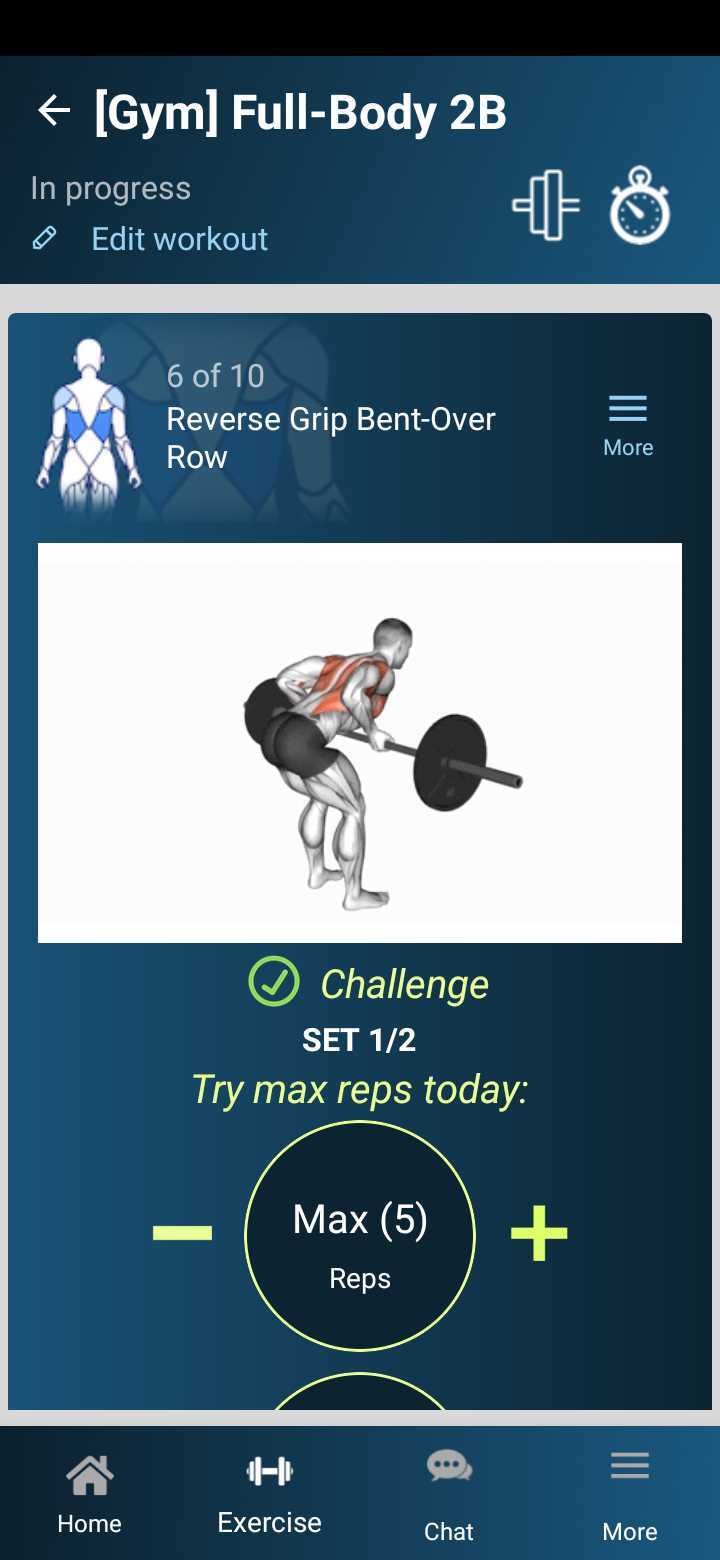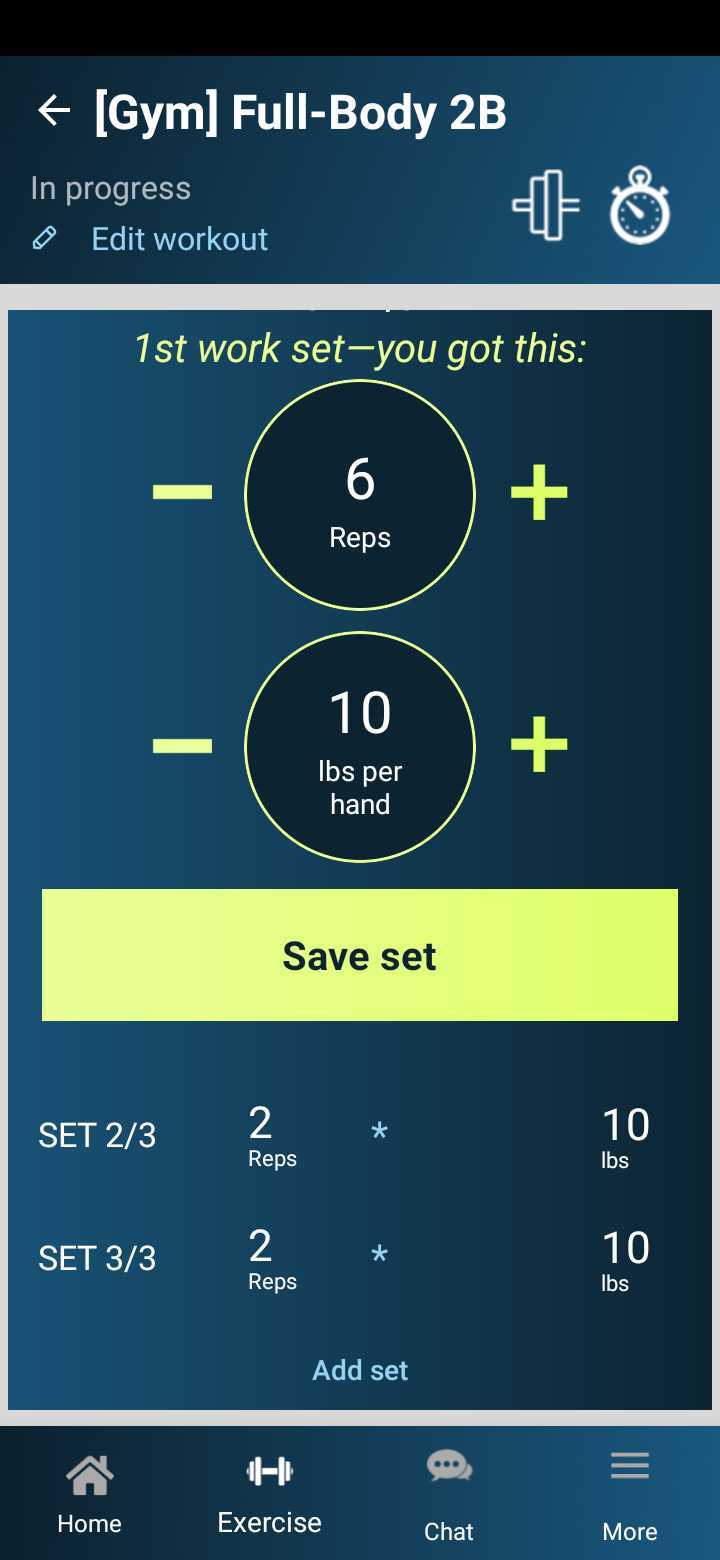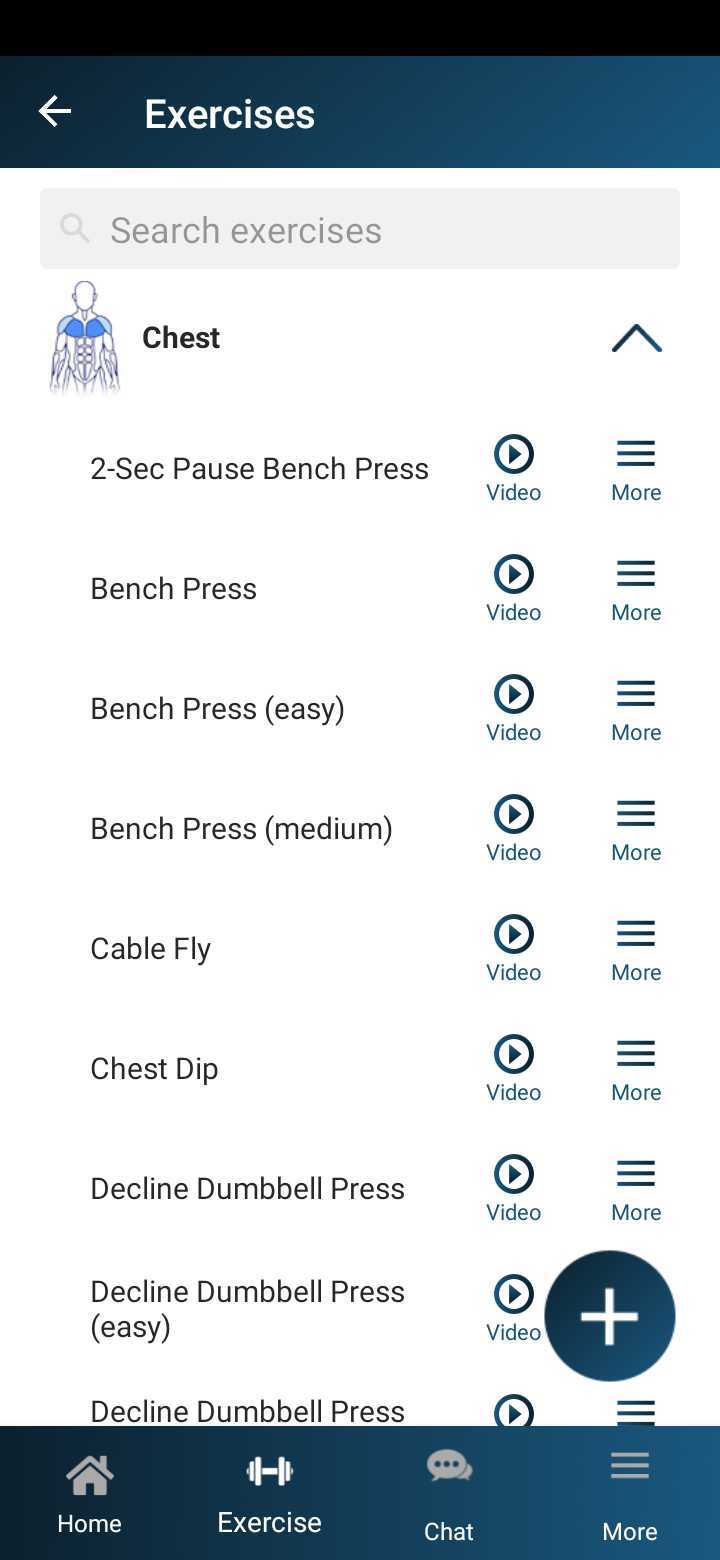JEFIT Workout App: Critical Review and Alternative
JEFIT has 2,000+ programs—is this better or confusing?
So you want to get in top shape.
You found a workout app called JEFIT and you wonder if it is right for you.
To make up your mind, you could read about JEFIT on their website, the app store, or Google. I read all that, and I can tell you about a key flaw with JEFIT you won’t find anywhere else. This critical review of JEFIT will cover that, and more. But first, why should you listen to me?
Why I’m qualified to review JEFIT & make this assessment
My name is Garett Reid and I have been in this industry for over well over 10 years. I have earned my Masters in Exercise Science as well as hold several high level certifications such as NSCA CSCS and my CISSN.
Further, I’m also an Executive Council Member of the NSCA Strongman SIG. To be clear, I have been in the gym for over 20 years and have seen the rise of this industry which includes both the good and bad.
For example, I have been “tricked” with more gimmicks then I’d like to admit and know the tricks that are used by companies to seem more alluring to clients. Luckily, I’ve also been able to learn exercise science from a science-backed perspective and what good training should look like.
In this review, instead of going over what JEFIT offers from a quantitative perspective, I want to look at the quality of what it offers and if it can benefit lifters who are wanting to learn how to properly train for increased muscle size and mass.
JEFIT Review & Fitness App Alternative—in A Nutshell
In case you’re in a hurry, are the highlights of my review:
- JEFIT is a fitness app which primarily acts as an exercise and program database as well as being a workout tracker
- Dr. Muscle is a fitness app whose primary focus is to be a cheaper, yet just as effective alternative to a live personal trainer. It uses the fundamentals of training in it’s design while placing heavy focus on progressive overload (Peterson et al. 2010)
The best way to describe JEFIT is that “it is what it is”; it’s a database of exercises, programs and also acts as a fitness tracker. While it gives “suggestions” of programs you could use (some of which are questionable), it’s up to you to make decisions. However, that’s what it claims to be so don’t confuse this and think it will guide you along your fitness journey. To this point, it does have a ton of exercises you can choose from as well as over a hundred programs; however many seem ineffective or dangerous.
In a nutshell, JEFIT gives you way more exercises and programs than you would ever need but only gives you the ability to choose what to do with little guidance. On the other hand, Dr. Muscle delivers one program based on your personal needs and then tells you exactly what to do. In other words, it’s like a personal trainer on your phone.
JEFIT app: a brief review
To be fair, JEFIT is fairly popular fitness app with a supposed “8 million” downloads. It’s marketed as a one-stop-shop fitness tracker that boasts over 1,300 exercises and thousands of pre-designed programs. In total, their selection includes programs from beginners to advanced trainees such as 5X5, 5/3/1, and various others. However, after searching reviews from actual users, and the app’s marketing itself, I found a fatal flaw. That is, they all equate “more” to “better”.
For example, they claim to have a data base of over 1,300 exercises with the implication that this is a good thing. In other words, merely claiming “1,300 exercises to choose from” means absolutely nothing if the majority of them are worthless. In fact, it probably leads to confusion. To be clear, no one uses anywhere close to this amount of exercises because it’s not needed.
Another problem I saw is that no one reviewed any of their programs at all. Again, there are literally more than 2,000 so I obviously couldn’t review all of them. However, after I reviewed a selection of random programs, I saw numerous critical errors in the programming along with the fact it seems anyone can post their “training program” for people to try. To be clear, not only do they offer way too many programs, many lack basic lifting principles as well as some being designed by whoever wants to. In summary, while they do offer a lot of choices, I question if this can actually help you when training for strength and muscle growth and will provide a superior option; Dr. Muscle.
JEFIT has been around for a while and primarily markets itself as a fitness tracker and an extensive database of exercises and workout programs. For example, it has over 1,300 exercises in it’s database has over 2,000 pre-designed training programs.
One area where JEFIT is a bit unique is that it allows users to connect with other users or see if there are any other users near you. Further, it lets users post their own programs as suggestions for others to use. It also has a separate platform they offer trainers to use as a means to stay in contact with their own clients and prescribe training plans. Since that is out of the scope of this article, I won’t go into more detail of that aspect.
JEFIT offers a free version and paid version. The first is free and it seems to offer quite a bit but they rely on ads for revenue so that may be a distraction. However, you can look at all of the exercises and plans but you are not able to see video instructions of the exercise. However, a recent update seems to have lowered the quality of the free version (more details below).
The paid version, or “Elite”, has two options:
-Yearly $39.99
-Monthly $6.99
With this you receive:
– Removed ads
– Unlimited video instructions
– Audio exercise tips
– Access to “elite” workout plans
Drawbacks and issues with JEFIT
As mentioned above, JEFIT is a workout tracker and a database of exercise and training programs. After going through what JEFIT offers, it does seem to host a ton of options in both fields. However, more doesn’t always mean good; it simply means it hosts a lot of options to choose from. While it gives suggestions on what programs to use, it’s largely up to you to decide what to use as well as if you want to add exercises. There’s also the social aspect which may be attractive to some but can be a huge obstacle to others.
To be clear, I don’t think JEFIT is necessarily bad; it’s just that you need to know what it is and what it isn’t. Therefore, I want to go through what JEFIT actually offers and discuss why it might not actually benefit you.
A massive database of exercises
Mentioned several times above, JEFIT has over 1,300 hundred exercises in it’s database and includes exercises you can do with barbells, kettlebells, bodyweight, dumbbells, machines, etc. I looked over them and that’s exactly what it is. This can be useful if you know what it is you’re looking for or if you even need an idea for something new. However, one of the main problems that beginners have when they go to the gym is not knowing what to do. Therefore, having 1,300 options probably isn’t going to help much. Further, many of the exercises are so similar, it’s hard to even tell them apart; even when someone like myself is looking at them.
Still, 1,300 exercises is way more than anybody needs to have in order to workout. Most serious trainees probably have a main pool of around 50 exercises that they use (This of course can vary widely). Point being, having the top 100 exercises would be a lot better then having 1,300 exercises simply because there is a definite hierarchy in effectiveness of exercises.
To be fair, JEFIT claims to be a large database of exercises so they are what they say they are. However, don’t think you’re going to get guidance when you try to choose what exercise to do from their massive list.
Too many programs
Similar to the above, JEFIT offers a huge selection of programs. In fact, there are over 2,000 to choose from. Again, this falls under the category of “more does not mean better”. There is no need to have this many programs and it will inevitably cause more confusion. However, this massive database is due to their purpose of being a database so it makes sense. In other words, their main purpose seems to collect programs rather than only offer proven programs.
Programs with improper design
Many of their programs have very poor design as well as many being bastardized forms of popular programs. For example, one of their VIP programs under the guise of 5X5 has trainees performing up to 7 exercises a day which all utilize a 5×5 rep scheme. Still, all these exercises are training the same muscles groups such as bench press, incline bench press, shoulder press etc. To be clear, this is entirely way too volume much for anyone to train, let alone a beginner who the original 5×5 is meant for. Further, some of these exercises are isolation movements such as bicep curls which should not be using heavy weight. In conclusion, this program is labeled as “VIP” but not only is it poorly designed, it will get someone hurt.
After looking at quite a few programs (there are entirely way too many to examine each one), I saw this similar pattern of improper design, even with other know programs such as 5/3/1. In my opinion, this was a more troubling issue than the exercises.
Below is an example of one of their programs which is not programmed well at all. There are a massive amount of exercises as well as an extremely large amount of volume. For example, multiple big compound movements are doing 8-9 sets which is not needed at all and in fact can set you back.
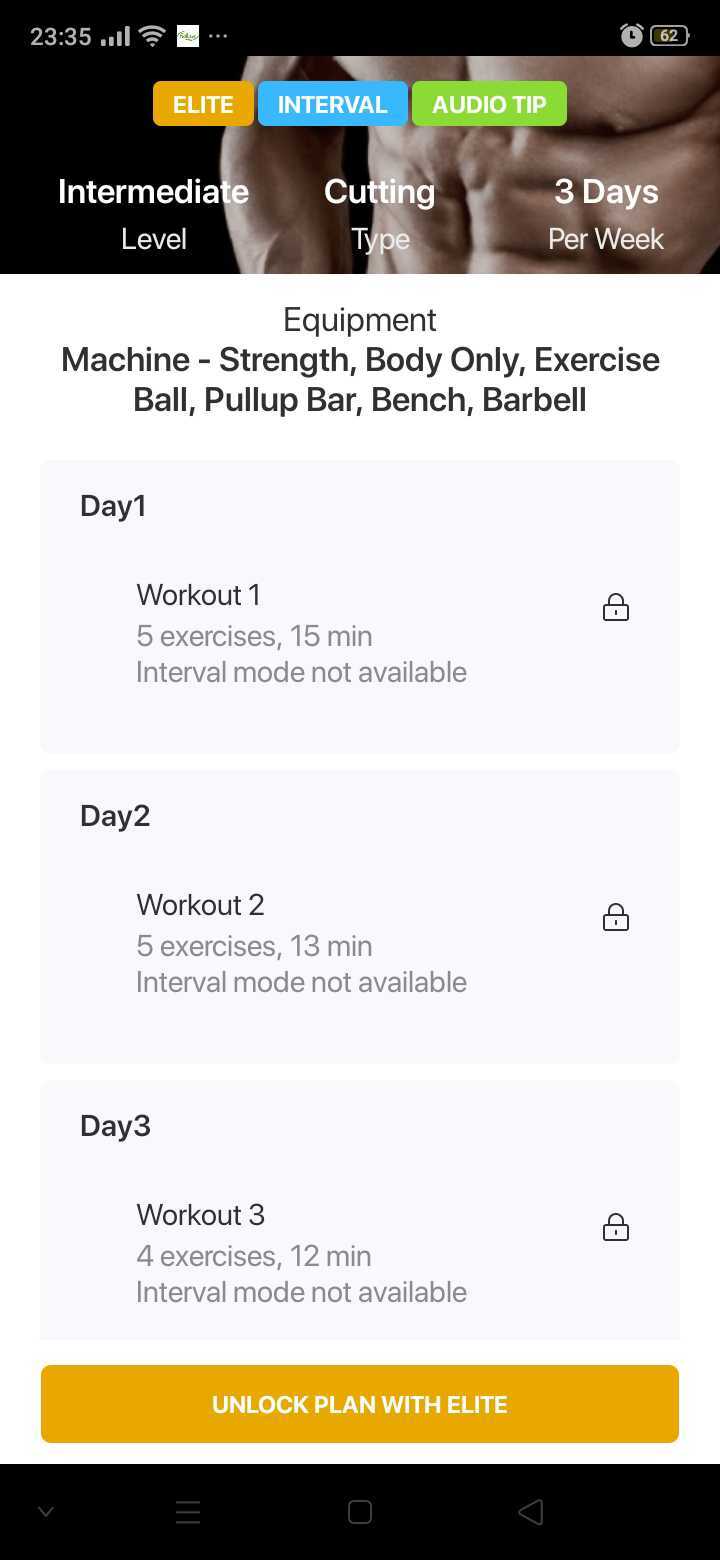
The social aspect
The social aspect JEFIT offers really highlights why this shouldn’t be your first pick if you are wanting good information on training and getting results. In other words, JEFIT allowing seemingly anyone to add their own program to the list of available programs is the same as asking a random guy at the gym what they do. Some of it’s good, most is bad, and a lot is actually dangerous.
For example, I am a member of several general Facebook fitness pages as well as several online forums. During this time, I have seen some of the worst advice given way more often than sound advice. Therefore, why use an app to learn how to lift properly if you can get the same, incorrect advice from your local gym?
Recent change in format
JEFIT currently has a 4.0 star rating out of 74,000 users on Google Play and a 4.8 star rating from 32,700 users on Apple. Overall it seems pretty good. However, after looking more closely, many of the poor reviews (1-2 star ratings) are fairly recent and are all concerned with some recent updates they have done. Therefore, I’m not confident that the overall score is a good representation of the current version. For example, one long time user named Dima X says”
“Last updates are awfully terrible. I wish to burn in the hell that who idea was to spoil such great app as it was before. Special thank you for removing off old approach of rest timers and sound alarm with that timer. I merely can work in the gym with new timer which I have to start manually after each repeats and walk around the phone waiting trying to watch on tiny timer.”
Why Dr. Muscle is a better fitness app to learn how to train properly
While JEFIT is primarily a database of exercise and a workout tracker, Dr. Muscle actually teaches you how to lift, tells you exactly what to do, and guides you along the process. For example, before you even begin training on Dr. Muscle, you are delivered a specific plan for yourself; you do not have to pick from a variety of choices. In other words, Dr. Muscle functions in a very similar way as a personal trainer in that you are not left guessing what to do or if what you’re doing is even effective.
Dr. Muscle delivers you a personalized plan
Upon downloading Dr. Muscle, you are asked a series of questions that is very similar to questions asked by an actual trainer (assuming they’re good). For example, you’re asked your sex, age, training age, available equipment, etc. To be clear, these questions are vital so that an appropriate plan can be designed for you. Still, it also asks detailed questions such as if you have any nagging injuries or if there is a muscle you want to focus on. At the end of these questions, Dr. Muscle delivers you a program that has been personalized to meet your needs. Still, you also have the option of adding or changing exercises if needed.
The exercises and programs are effective and backed by science
Unlike some of the programs found on JEFIT, there are no crappy workout plans that are created by Dr. Muscle. Dr. Muscle uses AI technology that was designed by leading experts in exercise science including PhD holders. After using Dr. Muscle’s questionnaire with various information, the app produced very similar programs to something that I would prescribe to my clients.
Their programs use compound exercises as a the foundation for strength and then uses an appropriate amount of isolation movements to hit some specific muscles. Most importantly, they put a ton of focus on using progressive overload which is the key component to any program; in other words, even having the right exercises means nothing if you don’t focus on implementing progressive overload.
Dr. Muscle implements DUP and RPE
DUP is a form of periodization known as Daily Undulating Peridiozation. It is a proven method of training that varies the load and intensity of exercises every day. To be clear, it has been researched quite heavily and is a proven method and used by top trainers and coaches around the world.
RPE stands for Rate of Perceived Exertion and is a form of self-regulation that allows a person to judge the intensity of a movement (Day, et al. 2004). It has been found to allow trainees, even beginners, to properly manage their fatigue. Both RPE and DUP are proven methods to utilize in a training program.
Dr. Muscle was designed specifically train you for success
Unlike JEFIT, Dr. Muscle is not just a database of exercises nor only a tracker. While it also has both of these features, Dr. Muscle’s main focus is to take someone who doesn’t know how to train properly and take them through the process step by step. After you fill in your information, you just need to follow the directions that Dr. Muscle gives you. Even still, Dr. Muscle hosts a variety of blog entries and links that can guide you to information so you can actually learn why you’re doing what you’re doing.
As a trainer and strength coach, I push education on all of my clients so this aspect is a huge plus for me. In other words, after using Dr. Muscle, you will have a solid understanding of what you need to do in the gym that will guide you for the rest of your life. Compare this to just completing a random training program only to find out that you still don’t really understand how to write your own program. In other words, Dr. Muscle has lasting benefits even if you decide to stop using it.
JEFIT & Dr. Muscle side-by-side comparison
Table 1—Side-by-side comparison of JEFIT and Dr. Muscle
Suggests adjustments and rest ‘de-loads’ based on your individual progress.
| JEFIT | Dr. Muscle | |
|---|---|---|
| Exercise Demos | Yes | Yes |
| Who is it designed for? | Anyone who is looking for ideas for new exercises or workout programs. They have programs for muscle hypertrophy, strength, conditioning, etc. | Trainees who wants a specific program to be designed for the that is 100% backed by science. It’s like having a trainer without the high costs |
| Set-up time | It only requires downloading the app and then it’s up to you on how long you spend looking at the programs they offer. | After donwloading, you just need to answer their questions which is absolutely necessary for any
properly designed program.
Simplistic goal specific design. |
| Program Design | There is not real “program design” as you can choose one of over 2,000 pre-designed programs. Unfortunately, most of them seemed to be poorly designed. | 100% science backed program designs. They’re very similar to what you would receive from an elite coach |
| Home workouts available? | Yes | Yes |
Gallery 1—Screenshots of JEFIT App
Gallery 2—Screenshots of Dr. Muscle App
Drawback to Dr. Muscle: More expensive than JEFIT
When comparing prices, Dr. Muscle is considerably more expensive than JEFIT. However, this isn’t really a good comparison because they are really two different fitness apps. In other words, I feel both prices are well-suited for what they deliver. That being said, Dr. Muscle has a premium price for a premium product. In other words, purchasing Dr. Muscle is for those people who are 100% serious about wanting to make progress in the gym. On the other hand, Dr. Muscle is considerably cheaper than hiring a personal trainer even though the program delivered is just as effective, if not more.
Verified Reviews For Dr. Muscle
For more reviews and videos, check out customer feedback.
FAQ: Free trial, cancel anytime & more
How much does the Dr. Muscle workout app cost?
Learn more on the app’s free trial page.
Can I cancel anytime?
Yes, there is no contract so you can cancel whenever you want.
Is there a free trial?
Absolutely, Dr. Muscle comes with a 2-week free trial that gives you
full access to all of it’s features
Summary of JEFIT vs. Dr. Muscle
Comparing JEFIT to Dr. Muscle is like comparing having access to the archives of a typical fitness publication and hiring a elite coach with experience and education. In other words, JEFIT will give you a bunch of information that you need to wade through while Dr. Muscle analyzes your details and delivers a program to follow. And then, Dr. Muscle actually guides you as you progress the entire way.
To be clear, I don’t think JEFIT is a bad app since it’s not claiming to be something it’s not. Plus, if you have been training for a long time and just want something to give you new ideas, JEFIT could deliver. However, I would never recommend it to someone who is wanting to train, progress, and build muscles and strength. When compared to Dr. Muscle, there is no real comparison.
Dr. Muscle is more expensive but as the saying goes “Great work ain’t cheap and cheap work ain’t great”
My Take On JEFIT
JEFIT is exactly what they say they are and they do a good job at it. What this means is they have compiled a list of more exercises and programs than you’ll ever need. The main issue I saw with many of the programs were poor design; even ones that were considered VIP. However, this is similar to almost any forum, Youtube page, or random fitness blog you come across. The best summary of JEFIT is that it is a conglomerate of every program ever published in any fitness magazine. Their main benefit is to be used as a tracker along with having some interesting features like audio assistance and timers. However, more is not better and I do not see JEFIT being a great app for someone who is looking for guidance on building muscle mass and strength.
Comparing JEFIT to Dr. Muscle isn’t even possible due to Dr. Muscle being on a completely different level in terms if effectiveness. In other words, if you want to improve, you need to use Dr. Muscle.
